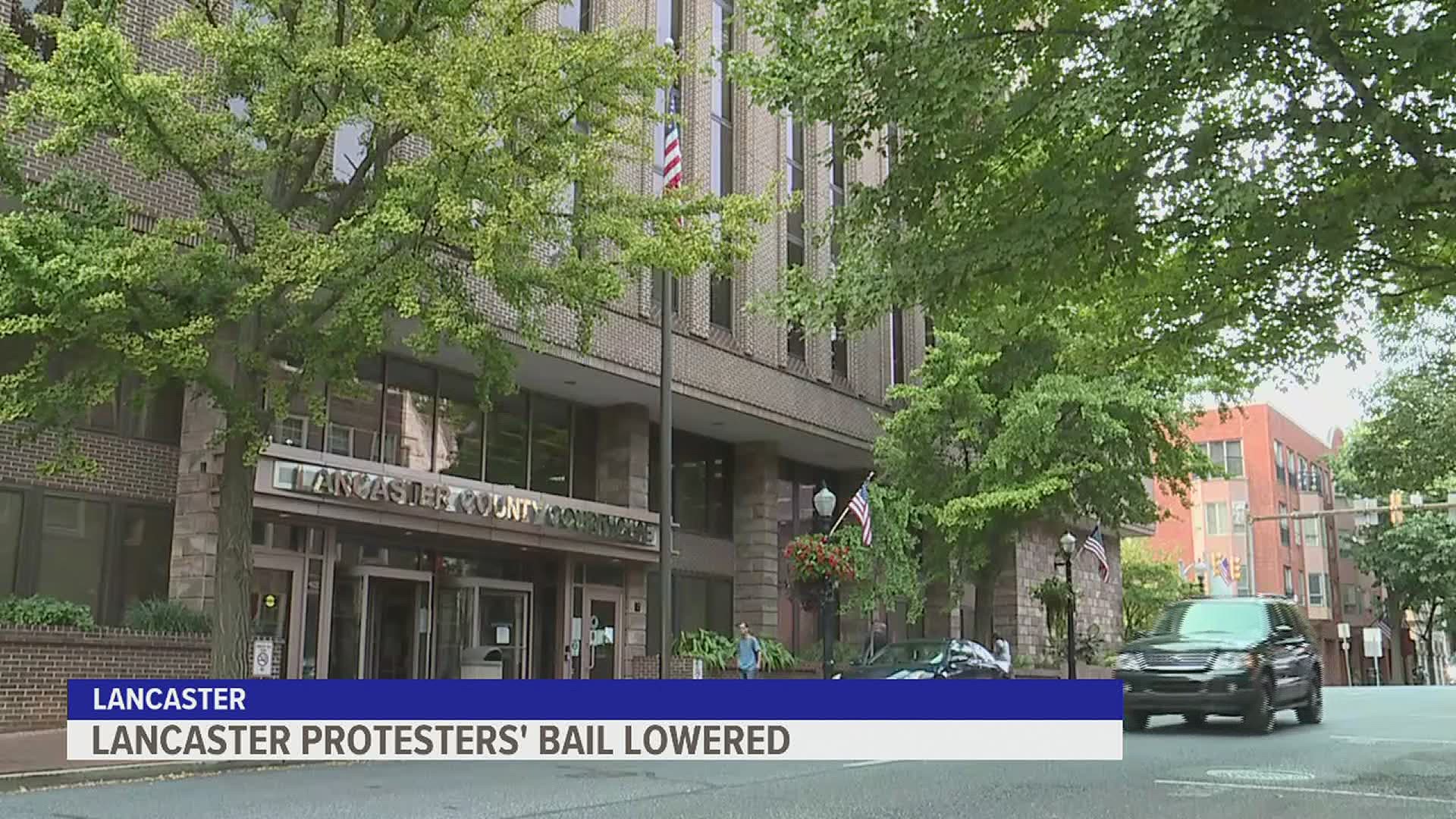LANCASTER, Pa. — Nine of the 13 protesters arrested for their roles in this week’s protests had their bails lowered Thursday, following public outcry against their original bail amounts set at $1 million.
Six were released from Lancaster County Prison Thursday afternoon after their bail was lowered: Dylan Davis, Talia Gessner, Barry Jones, Yoshua Dwayne Montague and Kathryn Patterson.
The protesters were arrested in the days following the shooting death of 27-year-old Ricardo Munoz Sept. 12 at the hands of police. All were charged with several riot-related felonies and misdemeanors.
The high bail amounts effectively forced the arrested to remain in jail while awaiting trial.
“Make no mistake, these orders were in fact detention orders. These detention orders were illegal because they were not accompanied by robust due process,” said ACLU Pennysylvania lawyer Hayden Nelson-Major at a press conference held by community action group Lancaster Stands Up.
After strong criticism from local leaders, civil rights groups and even Penn. Lt. Gov. John Fetterman, the Lancaster County Magisterial District Court lowered the bail amounts of all nine who had previously had $1 million bail set.
The new amounts ranged from $25,000 to $100,000. Some of the new bail amounts were unsecured, meaning no money is required upfront to be released from jail.
Community groups and local leaders praised the bail reduction as a good start but expressed at the afternoon press conference that they still expected a fair, transparent trial, as well as accountability from police.
“I need a full documentation post trial of what evidence merits that treatment,” said Lancaster City Council President Ismail Smith Wade-El.
At the start of bail hearings Thursday, Lancaster County Judge Dennis Reinaker, who did not impose the original $1 million bails, made a statement on the matter. He “noted that there is disagreement among the public regarding what bail should be, while recognizing the initial actions regarding bail were taken in ‘the spur of the moment,’” according to Lancaster CrimeWatch.
The Lancaster City Bureau of Police defended their actions during the protests.
“We understand that there's been a lot of scrutiny related to this, but you know quite honestly you know we were dealing with a large amount of civil unrest riots,” said Lancaster Chief of Police Jarrad Berkihiser.
The police department had requested the arrested protesters receive higher bail amounts due to the “serious nature” of their crimes.
“We had to move out to clear people from trying to take over our police station five different times,” Berkihiser said. “People were throwing rocks, bottles, bricks, D-cell batteries at our police officers.”
Berkhiser also noted bail is determined based on several factors.
“A magisterial district judge has several different things they look at the individual backgrounds of each person, ties to the community, how long they have lived in the community, prior criminal history and the severity of charges,” he said.
At least two of the arrested who were released—30-year-old Barry Jones of York and 28-year-old Dylan Davis of Ephrata—said they didn’t believe they should have been arrested and would fight the charges.
“You know, I'm looking at something close to 80 years in prison as a maximum sentence, so the million-dollar bail freaked me out a little bit, but I ain't do nothing,” said Dylan, who was charged with felony arson, institutional vandalism, and riot, and misdemeanor obstructing public passages, disorderly conduct, and defiant trespass.
The protesters have drawn both local and national support.
Lancaster Stands Up organizer Eliza Booth said the organization was working with the National Bail Fund Network to put up some of the protesters’ bails.
The Lancaster NAACP is working to find lawyers to represent the protesters, said branch president Blanding Watson.
Some have used this incident as an example to call into question the entire cash bail system.
“The practice of imposing monetary bail fines [falls more] heavily on minority population than those with economic resources calls into question the long-held value of 'innocent until proven guilty,’” he said.

